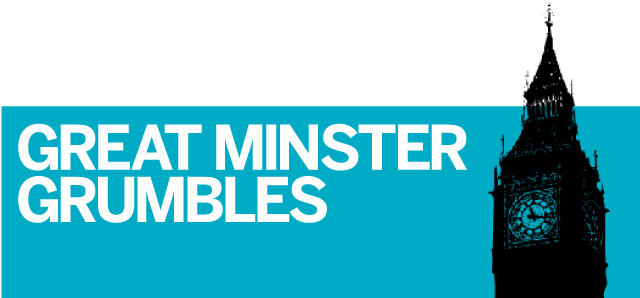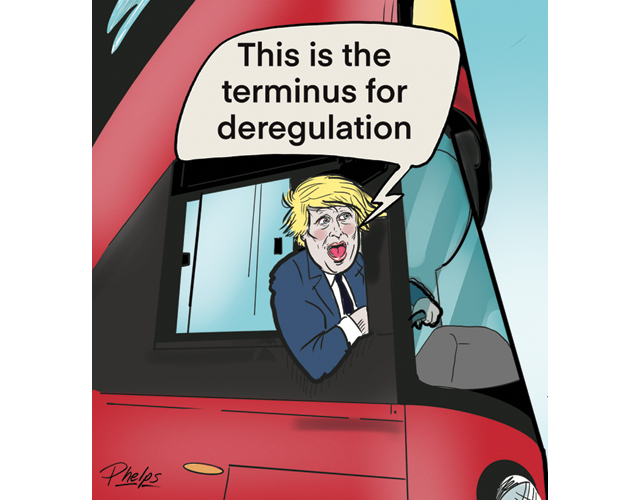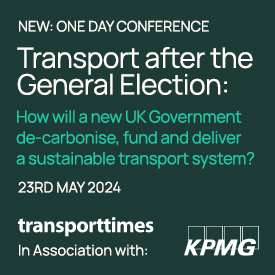Our Whitehall insider imagines what’s going on inside the minds of the mandarins at Great Minster House, home of the DfT
Finally, we’ve published the National Bus Strategy. As ever when new “strategies” get published governments love to describe them as revolutionary or ambitious. The National Bus Strategy is no exception, with the accompanying press release describing it as “the most ambitious reform to the sector in a generation”. On this occasion this claim may well be fully justified as, in my judgment, the bus strategy has well and truly brought the curtain down on the commercial bus market.
Let’s highlight a few points. The strategy says there “simply can be no return” to the days when bus services could be planned and operated by commercial companies without the engagement and support of transport authorities. Combined Authorities and local transport authorities will be expected to commit to either a franchise or an enhanced partnership arrangement by June 21 this year – a condition for the continued payment of the Covid-19 Support Grant. They must produce a Bus Service Implementation Plan by October 2021 and this Plan must be put into effect by April 2022 and must be updated annually. While this plan must be developed in consultation and cooperation with bus operators, it must deliver a model network that the local transport authorities want to see. I can only assume this means that if the operators don’t like the plan, there is not a lot they can do about it as the plan must deliver what the local transport authorities want.
Moreover, fares will be capped and controlled, leaving operators with no commercial freedom to set the fares they want. Local authorities will also be under a new statutory duty to support socially necessary and economically necessary services.
Put all of these factors together and it seems to me that the bus operators no longer have any freedom to run the services they wish. They will only be able to run services determined by an authority under a franchise or an enhanced partnership and as determined by the Bus Services Implementation Plan.
It should come as a surprise to nobody that this government has brought an end to deregulation
It should come as a surprise to nobody that this government has brought an end to deregulation. The writing has been on the wall for some considerable time – indeed within days of Boris Johnson becoming prime minister in July 2019 he was extolling the virtues of franchising at a speech in Manchester (PT215) and indicating that he wanted to see “a London-style bus system” extended to Greater Manchester and elsewhere. Boris even pays a modest tribute to Ken Livingstone for his bus policies when he was London’s Labour mayor! Says it all. And in an early appearance before the Transport Select Committee after his appointment as secretary of state for transport Grant Shapps pretty much said that the Conservative government’s bus policies were aligned with Labour’s own ideas for the sector.
The pandemic may have changed the landscape in a dramatic way with the impact it has had on public transport ridership. But given what the prime minister and the secretary of state for transport have both previously signalled, I wonder whether this bus strategy would have been materially different even if the pandemic had not come over the horizon. I doubt it, somehow.
I can’t believe that the bus industry is remotely happy with this strategy. The role of the operators is now largely confined to being utility operators doing what they are instructed to do by local authorities. They will have no commercial or operational freedom so far as I can see. But here’s the rub: have we actually reached a point in the policy and political cycle where even a Conservative government believes that deregulation and privatisation has had its day? Certainly, I have a very strong hunch that the public mood will be very supportive of the proposals in the strategy – as I am sure they will be of the proposals in the rail while paper when that finally comes out.
So the bus operators might not like it, but they shouldn’t be surprised. But here’s a thought. What future is there now for the Confederation of Passenger Transport? This is a trade association whose primary function is to represent the pro-deregulation bus operators. For sure, it provides significant technical support and other services to its members, but what happens to CPT now?
In certain respects I can’t help feeling that the bus industry has had this day of reckoning coming for some time. Of course, the collapse in patronage as a result of the pandemic was not of its making, but the warning signs have been around for quite some time. I am not sure the industry responded well enough to stop this, pandemic or no pandemic.
For More Great Minister Grumbles – CLICK HERE.
This article appears inside the latest issue of Passenger Transport.
DON’T MISS OUT – GET YOUR COPY! – click here to subscribe!









